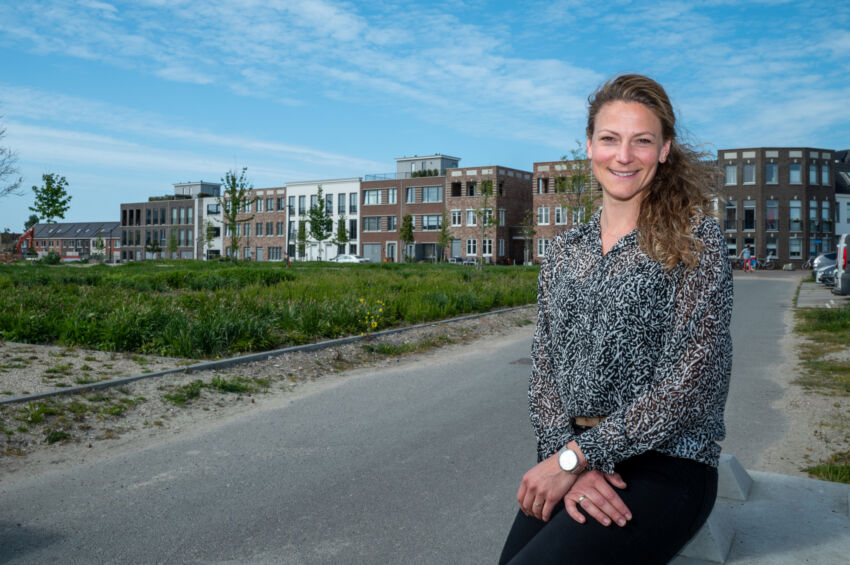Within CASCADE, partners from the Netherlands, Belgium, England and France worked on a new care model for people with dementia and their family caregivers. Iris van de Velde is one of the researchers who was involved on behalf of the HZ Healthy Region research group. The Interreg 2 Seas project was completed this year, but the work is not over yet.
People living with dementia and their informal caregivers should be central to the support and care they receive. That was the thinking behind CASCADE, the project name that stands for Community Areas of Sustainable Care And Dementia Excellence in Europe. "We want them to be able to continue living and functioning in their own home and environment for as long as possible, despite the diagnosis. If you take someone away from there it's not good for the disease process anyway," Iris van de Velde explains. "For that reason alone, it is good if they keep their freedom as much as possible and can continue to do what they have always done. In doing so, we have to help them."
Misunderstood
People living with dementia often feel misunderstood. They feel they are seen primarily as patients rather than human beings. 85 percent of people living with dementia would like to continue living at home, the researchers know. However, 47 percent of that group does not know whether this is possible or how it should be done.
They need guidance. In practice, however, they mainly receive a lot of information about their illness. That needs to change. "We really need to talk to the people themselves and start from the person themselves, looking at the possibilities and what people living with dementia can still do. They need support in this," Van de Velde said. "As care, we have to take that into account. Customization is really needed."
At the same time, there needs to be much more understanding of the target group. To this end, Van de Velde and her colleagues have developed, among other things, training courses and leaflets that help you recognize symptoms of dementia, such as aggression, agitation and confusion, more quickly. "The chances of escalations and unnecessary, long-term hospitalizations are then reduced." An additional benefit is that preventing unnecessary care saves a lot of money. The trainings and leaflets are for everyone to combat stigma and work together toward a dementia-friendly society."
Evaluation
It is not only in one's own environment that things need to change, but also in care facilities things can be improved. During CASCADE, new forms of care were tested in two Flemish nursing homes. Healthy Region was involved in the evaluation of these pilots. "In the institutions, for example, people worked with a fixed daily schedule. Now the care is much more personalized. If someone wants to sleep in, they can, for example. That means a few things for the work. You have to have the necessary conversations with clients, caregivers and family members for this, but it does pay off."
Van de Velde wants to work with Zeeuwse Zorgschakels and Alzheimer Zeeland, among others, to see how CASCADE's ideas can be rolled out here. The main focus will be on care at home, since most of the target group still lives at home. There have already been theme afternoons where ideas have been collected from people with dementia, their informal caregivers and care professionals. Van de Velde hopes to start working with this input as soon as possible, perhaps in a follow-up project. "I would like to continue. It's important that it doesn't stop at talk."
CASCADE was subsidized by the Interreg 2 Seas program. All project partners also contributed financially themselves.

